- Curriculum
-
Giovanni Gerardo Muscolo was an Assistant Professor in Mechanics of Machines at Department of Engineering for Innovation Medicine, University of Verona, Italy. His research interests include (ERC Panels: PE7_10, PE8_7, PE8_10):
-) Mechanics of Machines;
-) Compliant Mechanisms;
-) Soft-Mechatronics;
-) Variable-Stiffness Actuators;
-) Force/Torque Sensors;
-) Cable-Driven Mechanisms;
-) Multibody Dynamics;
-) Bio-Mechanics;
-) Robotics;
-) Haptics;
-) Teleoperation;
-) Sustainable Design;
He was the coordinator of the Course "Industrial Plants and Production Management" and the lecturer-in-charge of the module "Industrial Plants" at the master’s degree in computer engineering for robotics and smart industry (University of Verona, Italy). He was the coordinator and the lecturer-in-charge of the course "Sustainable Embodied Mechanical Intelligence" at the Ph.D. in computer science (University of Verona, Italy). Dr. Muscolo collaborated with the Altair Robotics Lab in the Autonomous Robotic Surgery (ARS) ERC European Project. He collaborated with the Industrial Computer Engineering (ICE) Lab, a result of the Italian Department of Excellence of Computer Science (University of Verona, Italy).
Dr. Muscolo received his M.Sc. (2008) and Ph.D. (2014) in Mechanical Engineering respectively from University of Pisa and University of Genoa, Italy. He was a Research Fellow (since 2009 to 2012) and a Postdoctoral Research Fellow (since 2015 to 2017) at Sant’ Anna School of Advanced Studies, Italy. Since 2012 to 2015 he was a Research Fellow and Postdoctoral Research Fellow at University of Genoa, Italy. Since 2017 to 2018 he was a Postdoctoral Research Fellow (within the Advanced Robotics Research Line) at Istituto Italiano di Tecnologia, an English-speaking Research Institute. Since 2018 to 2021, he was an Assistant Professor in Applied Mechanics at Politecnico di Torino, Italy.
Modules
Modules running in the period selected: 6.
Click on the module to see the timetable and course details.
Di seguito sono elencati gli eventi e gli insegnamenti di Terza Missione collegati al docente:
- Eventi di Terza Missione: eventi di Public Engagement e Formazione Continua.
- Insegnamenti di Terza Missione: insegnamenti che fanno parte di Corsi di Studio come Corsi di formazione continua, Corsi di perfezionamento e aggiornamento professionale, Corsi di perfezionamento, Master e Scuole di specializzazione.
Research interests
| Topic |
Description |
Research area |
|
Industrial Engineering, Industrial Plants, and Sustainable Industry
|
Industrial Engineering is an engineering branch focused on studying and transforming the idea in a real prototype and industrial product.
At University of Verona we are trying to study new sustainable industrial solutions and industrial prototypes.
Our objective aims at conceiving a new methodological approach for solving industrial problems.
Some components of an industrial plant and their interaction are analysed (e.g., industrial robots, exoskeletons for industry, robots with wheels/legs for industrial and agri-food plants, parallel platforms, mechanisms with cables). An interaction with the Altair robotic lab and ICE lab at University of Verona is pursued, studying industrial components in the industry: industrial robots, actuators, grippers, conveyors, mechatronic systems, surgical robots.
|
Robotic systems and automation
Sistemi robotici e automazione
|
|
Sustainable Embodied Mechanical Intelligence
|
The main objective of this research sector is to study the embodied behavior of mechanical components and to use their mechanical intelligence to conceive new sustainable devices in simbiosis with the real world. We use the term "embodied mechanical intelligence" to underline the embodied capability of the mechanical component to respond to an external physical input.
At University of Verona we are conceiving new sustainable embodied mechanical systems for many different applications.
|
Robotic systems and automation
Sistemi robotici e automazione
|
|
Mechanics of Machines
|
Mechanics of Machines is a big research sector with the main focus on study, design, and control the mechanical behavior of components, mechanisms, and machines. kinematics, statics, and physical interaction of components in industrial systems and real contexts are studied in the research sector. Dynamics of machinery are analysed in order to reduce disturbances, vibrations, and optimize the mechanical behavior of machines. In following, some steps performed to design and develop innovative machines: theoretical modelling; conceptual, functional and sustainable design of machines; simulation; prototyping; implementation; experimentation; industrialization; automation; maintenance and monitoring. In following, keywords included in the research sector: Mechanical Engineering; Bio-Mechanical Engineering; Computational Kinematics; Dynamics of Rotating Machines; Engines and Powertrains; Gearing and Transmissions; Linkages and Mechanical Controls; Micromachines; Multibody Dynamics; Robotics and Mechatronics; Sustainable Energy Systems; Transportation Machinery; Tribology; Vibrations.
At the University of Verona we are studying: variable stiffness mechanisms and machines; compliant actuators; force/torque sensors; cable-driven mechanisms; robotic surgery; minimally invasive robotic surgery; micromechanics; multibody dynamics; micro electro-mechanical systems, innovative surgical robotic tools with sensing elements.
|
Robotic systems and automation
Sistemi robotici e automazione
|
|
AI, Robotics & Automatic Control
|
Robotics is concerned with the development of systems that make the intelligent connection between perception and action. For this reason, robotics is strongly interdisciplinary, including mechanical and electronic design, computation and data fusion algorithms, machine learning and reasoning, and motion control and environment interaction methods. In the last years, robotics systems have matured in terms of safety and reliability and they can now work in delicate environments and in direct contact with people. In case of demanding cognitive tasks, robots are usually supported by a human operator, in a teleoperation mode. A well established example of teleoperation system is a surgical robot, in which a surgeon directly moves the robotic tools to carry out the intervention. A new research direction is the addition of autonomous functions to the robotic systems. To reach this goal, we need to improve the perceptual and cognitive capabilities of the robots, to interact safely with a complex real environment. Some of the research topics addressed at the University of Verona include: control and system theory, modeling and analysis of human perception, coordination of multiple-robot systems, distributed sensing and control algorithms, teleoperation algorithms, and analysis of the physical interaction of humans and robots.
|
Robotic systems and automation
Sistemi robotici e automazione
|
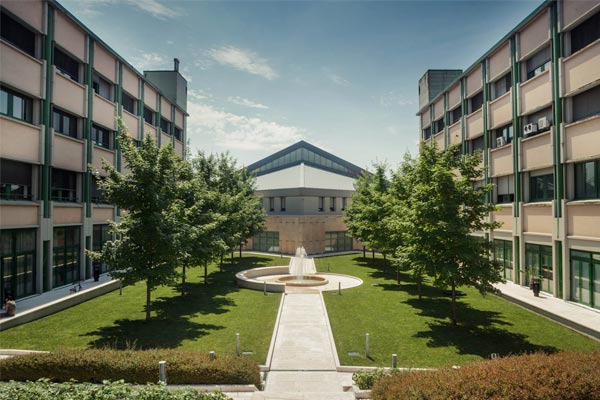
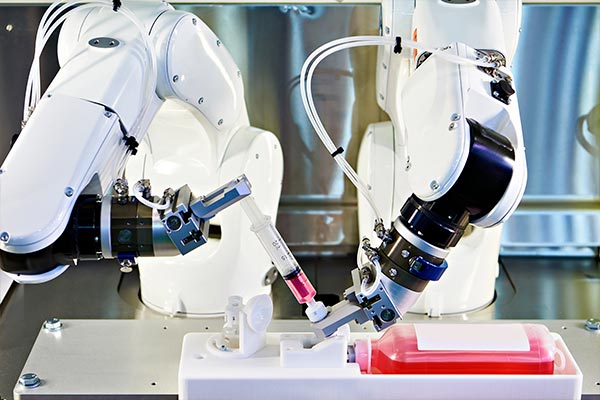
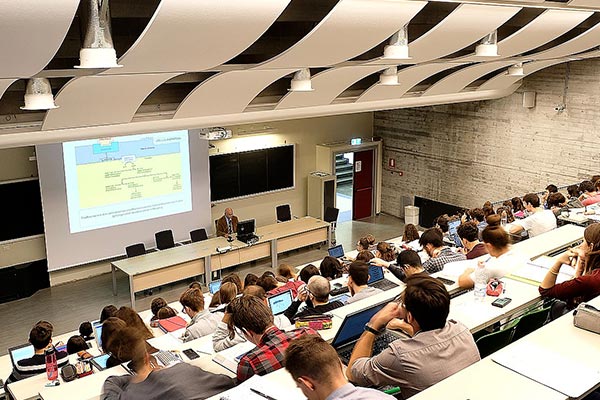
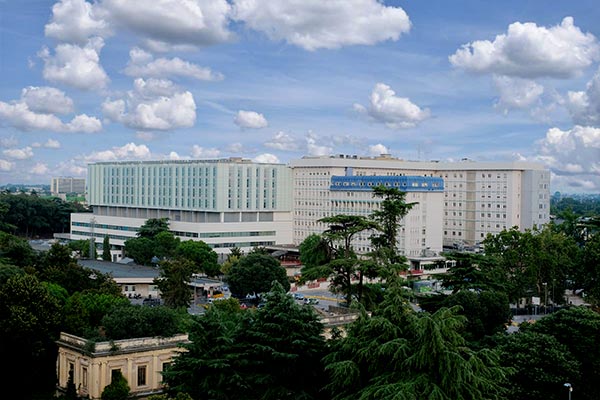



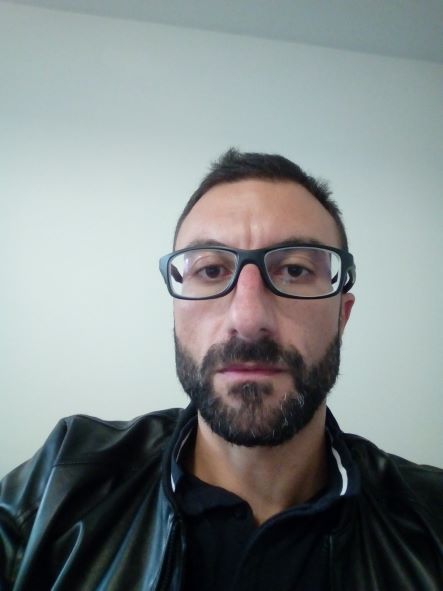
 muscolo
muscolo univr
univr

